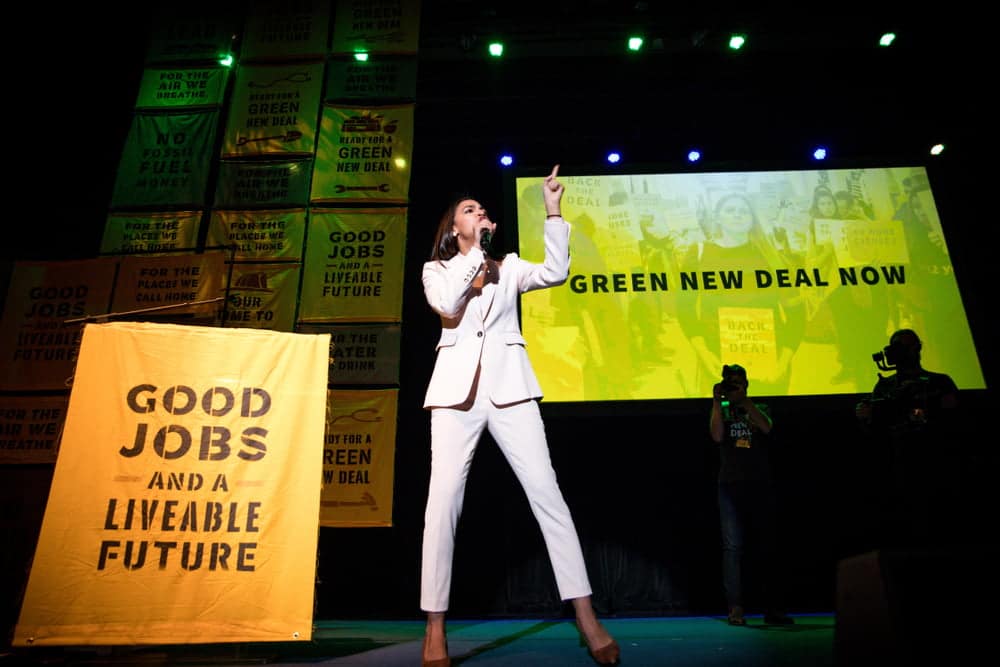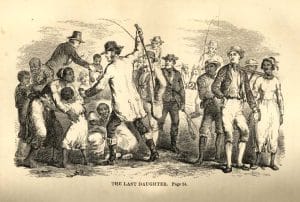Washington culture has become a battleground for progressive politicians hoping to make a change. As Mark and Paul Engler described in their recent essay in Dissent, “Can Movements Stop Politicians From Selling Out?,” left-wing politicians often find themselves giving in to their neoliberal and centrist peers once elected, much to the disappointment of social movements that helped elect them in the first place. But how does this happen, and how can it be avoided? In the essay, the Englers explored five “filters” that impede progress within Democratic circles and discussed how social movements can assist movement candidates to prevent these filters from interfering with their progressive goals.
The Engler brothers are activist writers who focus on issues of labor inequality, environmental justice, and social movements. Mark Engler is based in Philadelphia, while Paul Engler is based in Los Angeles. In an interview on Out d’Coup podcast, Mark Engler explained the ideas behind their article and the roots of the “five filters.”
The five filters were first described by Noam Chomsky and Edward Herman in their landmark 1988 book Manufacturing Consent: The Political Economy of the Mass Media. The Englers were interested in seeing how these concepts, initially meant to describe Cold War-era U.S. media, could be applied to the modern-day political culture of Washington, D.C. Could they help explain how progressive politicians become deradicalized after being elected?
On the podcast, Mark Engler talks about what he called “movement candidates,” people with a history of working with social movements before entering the political sphere.
“A movement candidate is not just someone who says the right things,” he said. “A movement candidate is something more structural. A movement candidate is someone that uses social movements as a base to combat the dominant culture of Washington, D.C. and to combat the thing that makes people sell out…But then you get to [the question], ‘What is it that makes people sell out?’ That’s when we turn to Chomsky and Herman.”
Engler discussed each filter, comparing them to Washington’s current political climate. The first filter Chomsky and Herman identified was ownership, or who governs the media and dictates what messages get broadcast. Engler compared this to the U.S.’s two-party structure and the relations between members. “Very quickly, when you get to Washington, you realize you have to defer to the party leaders and senior members of the parties,” he said. “If you come in badmouthing centrist colleagues or party leadership, you’re gonna be on the ‘outs’ … That can mean not getting your committee assignments that you want, that can mean not getting money from the Democratic Party Campaign Committee, that can mean local parties not endorsing you even though you’re the Democratic nominee.”
The second filter is finance–how the media (or, in this case, politicians) earn money. Since the 2010 Supreme Court case Citizens United v. Federal Election Commission, raising money has become a top priority for Democrats and Republicans alike. “You spend hours of your day on the phone with wealthy donors. That’s what politicians do, arguably more than they’re on the floor of Congress,” Engler said. “There are call centers in Washington, D.C. that are right across the street from the Capitol building, and you’re expected to go in for hours a day and dial for dollars.”
The third filter is what Engler called the “culture of expertise,” what is considered an “official” source that politicians take seriously. “There is this collection of think tanks, legislative advisers, technocrats, campaign managers, who create this conventional wisdom,” he said. “Some people talk about this as the Overton Window–what is the range of acceptable policy options? And then there are certain things that are completely outside … And of course, this relates to the money. A lot of these think tanks are funded by wealthy people or businesses. Those are the people that are hired in these offices, that are taken seriously.”
The fourth filter, flak, refers to backlash – what happens to politicians who try to shift the Overton Window or propose more far-left ideas. “Flak is what happens when you violate these other things,” Engler said. “You get cut off, your access is cut off from the party leaders, you get denied the committee assignments, you have corporations dumping money into your opponent’s campaign, they run a referendum or a recall against you, all of those mechanisms to hold people in line when they step outside of these filters.”
The final filter is what Chomsky and Herman identified as “anti-communist ideology,” but Engler believes the term is broader. “It’s not strictly anti-communism,” he said. “There’s lots of things that are ideologically placed out of bounds, but red-baiting and anti-communist stuff is still very relevant. That hasn’t gone away. It’s changed a lot, particularly since Bernie Sanders 2016, and now you actually have open socialists around … But even though dialogue about socialism has changed a lot, anti-communist stuff is still at the fore of Republican rhetoric.”
The filters create an environment that forces progressive politicians to comply with established norms to gain their peers’ respect and make any kind of meaningful change. By the time they are allowed any sort of authority, they’ve become so used to the neoliberal/centrist culture that the policies they end up enacting ultimately go against the wishes of the people who voted them into power in the first place.
“Politicians that go in that seem like they’re okay people … they go in and they run up against a brick wall with this stuff,” Engler said. “They have to play the game with the party, they have to raise millions and millions of dollars, they have to cozy up with the industry to make that happen. They hire advisers or they get their policy briefs from centrist policy experts. They buy into ‘This is just how it’s done.’”
The solution? Movement candidates.
“What it means to be a movement candidate is to use social movements as a base of power that can counteract each of those five filters,” Engler said. “It’s looking at these structural filters and then saying, ‘Okay, social movements provide a base for combating each of these things.’ With the party structures, when you have social movements that are forming progressive caucuses, forming factions … there’s actually support where you’re not alone. You’re in a caucus with people, you can join. Even the progressive caucuses got a lot stronger at the federal level, and they’re forming these at the state-city level.”
Engler emphasized the importance of ongoing communication between social movements and movement candidates as being beneficial for both parties involved. Without it, he said, “There is very little in terms of sustained engagement with this person until they disappoint us. We send them off, we want them to do the right thing … but then they take some vote that we don’t like … It’s this very limited model of how to be in a relationship with these politicians, particularly people we’re electing as movement candidates. We forget about them, and then we get pissed off at them. And that’s harmful both on our side – because it is disillusioning and demobilizing – but it’s harmful on the elective side.”
Engler also noted how part of the reason right-wing hate groups are so powerful is because they are in constant communication with conservative politicians; therefore, a similar strategy could work for progressive groups instead to counteract the power these right-wing circles have. “I think there is a tendency to look at some of that and just say, ‘Well, this is astroturf stuff funded by big corporations,’ and partly, that’s true. They do have bigger sources of money available to them … So to that extent, there is astroturf stuff that goes on, but we’re naive if we think that there is no grassroots base that they’ve been able to develop to mobilize people in support of reactionary policy, of white nationalist policy, et cetera. This is real, and in some cases, they have structures for doing this that may even be better than what we’re able to do. So we should learn from that.”
The Engler brothers are in the process of writing a book about movement candidates and how to break the five filters. Their previous book, This Is an Uprising: How Nonviolent Revolt is Shaping the Twenty-First Century, delves into the long history, strategy, and tactics of nonviolent movements in order to better understand how to build effective progressive movements today. You can find all of Mark Engler’s writing on his website, DemocracyRising.







